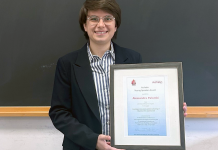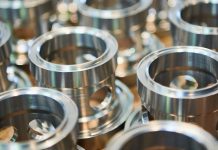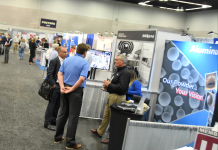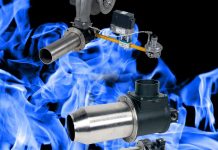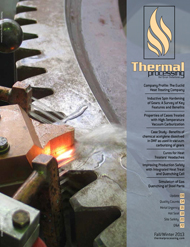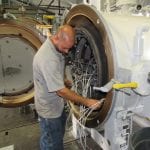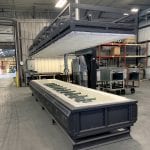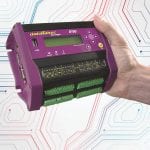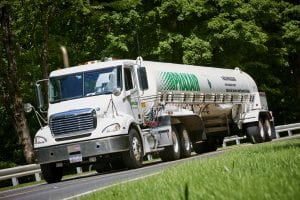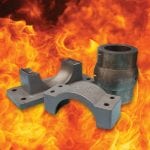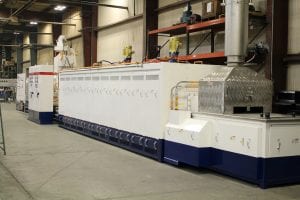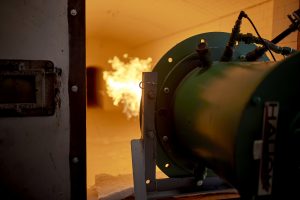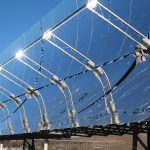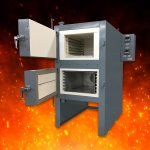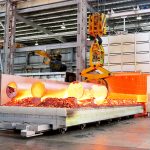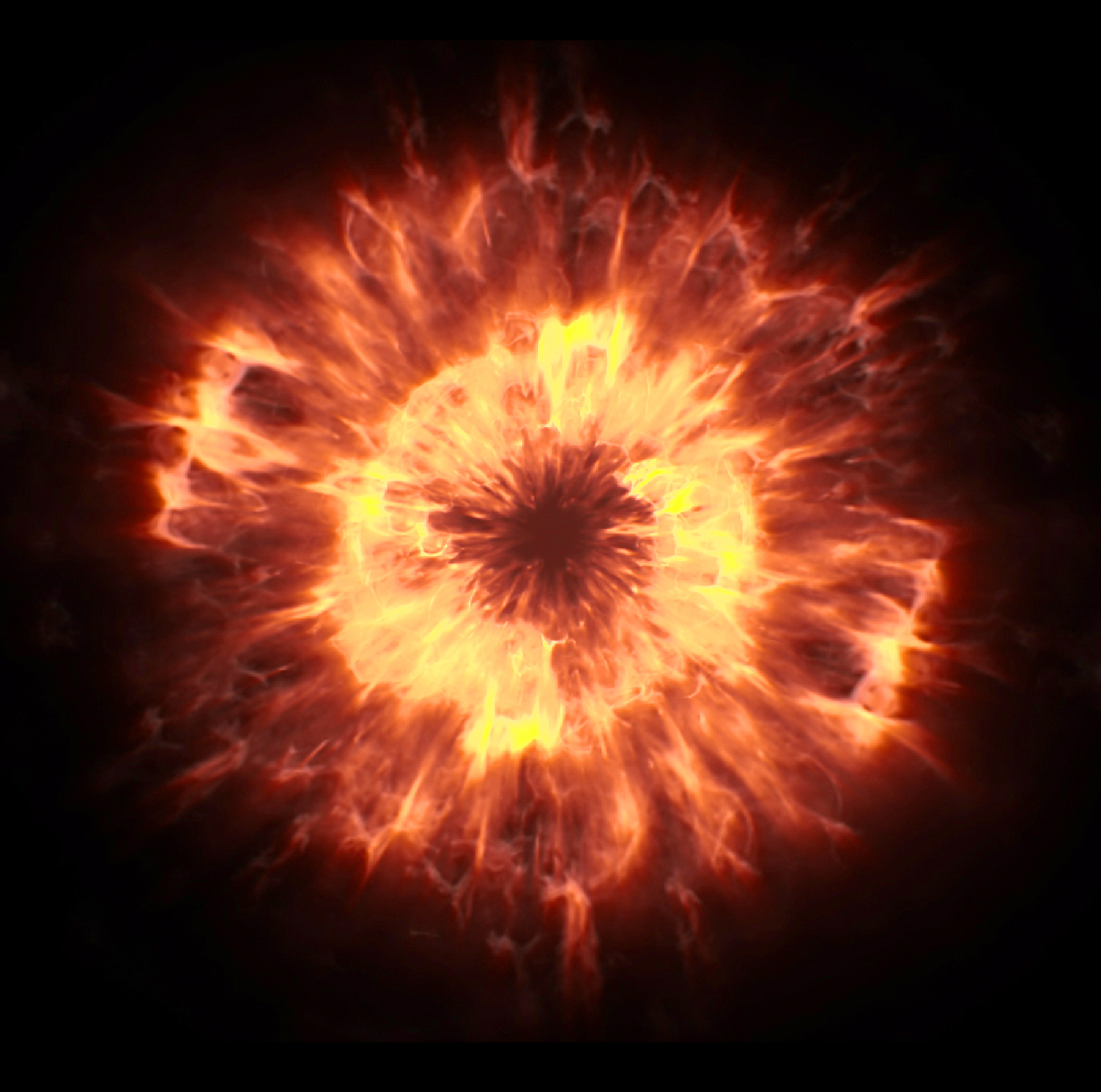If there’s a word to describe Cleveland, Ohio’s Euclid Heat Treating Company, that word is “diverse.” Established in 1945 in a garage building with salt and open fired furnaces, today they have expanded to include endothermic atmosphere furnaces, an entire building devoted to induction hardening, an array of vacuum furnaces including a vacuum oil quench and a VFS 10-bar furnace, pit furnaces, nitriding equipment, and much more.
When current owner John H. Vanas first got involved, the company was using salt pots and open fire annealing furnaces. They had a shaker furnace, an old rotary hearth furnace, and a pusher furnace. “A few years later, we got into the larger Surface Combustion oil quench batch furnaces,” he said. “We bought a vacuum furnace and put in a couple more pit furnaces. We started to get larger in size after that. We moved our induction division over, bought two more buildings to put equipment in, and got into the intensive quenching process. We took a building next door and turned it into our office building along with a dimensional inspection facility. We’ve expanded quite a bit, and we’re still upgrading.” John E. Vanas, sales manager and son of owner John H. Vanas, describes their impressive current location: “We occupy five buildings on one campus, buildings that house the wide variety of processes we provide. We’re close to 100,000 square feet under roof and employ over 60 workers.”
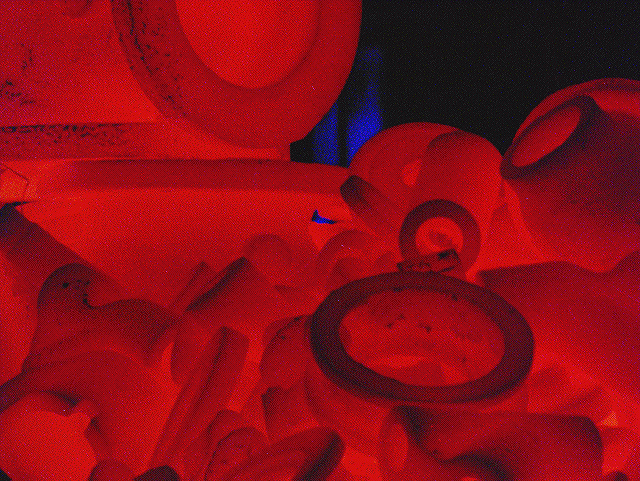 Euclid is certainly one of the more diverse commercial heat treat companies in northeastern Ohio, and even the nation. They offer standard heat treat services like quench-and-temper carburizing and carbonitriding. They perform induction processing, a selective hardening process. They can also vacuum harden, temper, stress relieve, and anneal all manner of tool steels, as well as high speed steels, and other exotic alloys … the list goes on and includes some less common processes:
Euclid is certainly one of the more diverse commercial heat treat companies in northeastern Ohio, and even the nation. They offer standard heat treat services like quench-and-temper carburizing and carbonitriding. They perform induction processing, a selective hardening process. They can also vacuum harden, temper, stress relieve, and anneal all manner of tool steels, as well as high speed steels, and other exotic alloys … the list goes on and includes some less common processes:
“We run some continuous processes using rotary retort furnaces,” Vanas, Jr. said. “These are less common in commercial settings—usually you see belt machines instead. The rotary retort is better for the uniformity of case depth. It’s ideal for stampings, bearings, and a variety of automotive parts. We have two rotary retort machines, one with a water/polymer quench and one with an oil quench.”
Within their vacuum-processing department, Euclid has a number of large-capacity vacuum furnaces, the biggest of which is capable of a 10-bar nitrogen quench. They also have a fairly unique vacuum oil quench furnace featuring a frontal quench chamber with an elevator that immerses the heated parts in oil. “That’s a very popular one for various tool steels and the like,” explained Vanas, Jr. “The advantage provided by oil quenching under vacuum is improved corrosion resistance and reduced crack risk for certain stainless steels.”
Another unique process they offer is Intensive Quenching, which is performed in a state of the art furnace, “a very important piece of equipment we have that no one else does,” as he described it.
“This particular technology uses interrupted water quenching and carefully controlled quenchant temperature and agitation in order to create superior compressive stresses in a variety of materials, which gives quite a significant improvement in the lifespan, wear characteristics, and toughness of less expensive alloy materials. The idea behind it is to allow manufacturers to use less expensive, lower-alloy materials, and through this process gain comparable (even superior) part life relative to more expensive, higher alloy material.”
The process has peaked the interest of companies in mining, aggregate, and scrap reclamation. And it’s gaining more popularity with shaft and gears, because it also minimizes distortion.
“There’s a precise, specific, in-depth technology behind it,” Vanas, Jr. said. “It requires a lot of up-front engineering. We’re one of two companies in the U.S. licensed to perform the process. The results are being proven—they’re speaking for themselves.
Euclid Heat Treating is ISO/TS 16949-2009 certified with a thorough in-house lab, recently updated and moved to a new location. They’ve added some high tech analysis equipment during the move, too, one of which is an automated micro hardness tester: the NewAge MT90. “It gives us the opportunity to perform micro-hardness evaluations automatically, which saves time and enhances accuracy. We program the machine to do a certain number of indentations along a specified path. It’s a very sophisticated piece of equipment. And it has helped reduce inspection time while increasing accuracy and work output. All the results can be downloaded to our production management system, where we can generate certifications to send to our customers electronically.”
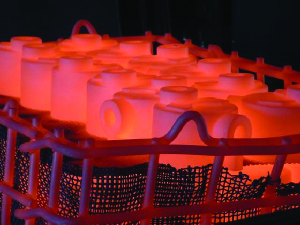 And that’s just the tip of the tooling iceberg you’ll find at Euclid. They very recently added a Niton XL3T hand-held, X-ray florescence (or XRF) material analyzer to expand their analytical capabilities.
And that’s just the tip of the tooling iceberg you’ll find at Euclid. They very recently added a Niton XL3T hand-held, X-ray florescence (or XRF) material analyzer to expand their analytical capabilities.
“It’s a useful tool to address concerns such as misidentified or non-conforming materials,” he said. “Sometimes the material customers send us is different from what they think it is. We proceed according to what the P.O. indicates until the heat treat results indicate something different. When that used to happen, we were left to guess what the material was with very little to go on, unless we sent a sample out for a chemistry. This adds a significant amount of time and cost to the process. With the Niton XL3T, we simply ‘point and shoot’ and it tells us what we’re dealing with. Using this device saves us time, money and headaches over what to do next. A simple call to the customer to find out how they would like us to proceed is all that is required to get our process back on track.”
The analyzer creates an X-ray that fluoresces electrons off of the outer electron shell of various elements present in the material. When the electrons are discharged from these atoms, they emit a certain amount of energy specific to each element. The detector is capable of measuring this energy for each element present and then identifying the type of alloy by comparing it with the chemistries of over 600 alloys in its internal library. Euclid is trained and certified to use it within the state of Ohio.
Sometimes they even take this show on the road. Vanas, Jr. said, “We even provide on-location assistance to help companies sort out their materials. One of our customers had parts which appeared identical but were made from different materials, one (made from high speed tool steel) much more expensive than the other. Rather than choosing to sell all parts at the lower price and suffer a significant loss on the more expensive parts, they called me and in about 10 minutes, we saved them money by sorting out which ones were the expensive ones and which were not.”
Back on the heat-treat side of things, Euclid has broad capabilities when it comes to induction heating. They operate power supplies from 30 kW all the way to 300 kW, and frequency ranges from 3Khz up to the RF (radio frequency) of 450Khz. They’ve done work for major automotive suppliers, after market component suppliers, bearing manufacturers, and the like. We can do everything from selective hardening on track bolt heads to automotive wheel bearing journals, even the wire formed hoop that latches the hood of your car in place.”
Much of what makes Euclid unique in their field is their ability to perform multi-disciplinary processes in one location. Some of their customers require neutral hardening, or carburizing processes, followed by induction hardening on specified area(s) of a part. Euclid can do all these in one location, which minimizes time loss between processes by eliminating the need to ship to outside vendors or other facilities. This has long been a significant advantage for their customers by saving them time and money, and even simplifying the quoting of heat treat work.
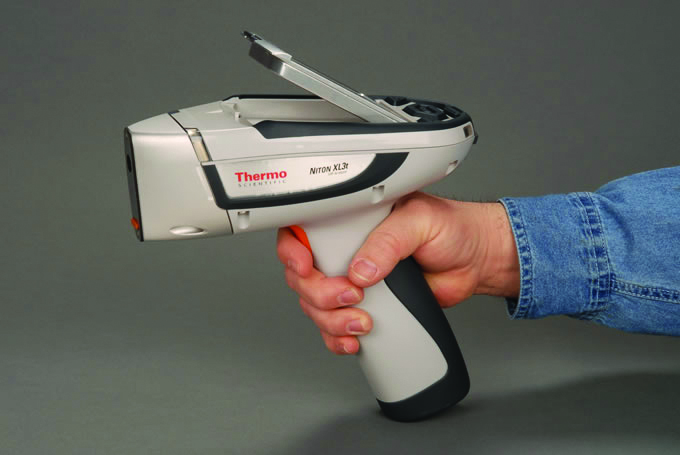 Ensuring consistent quality and providing comprehensive solutions are two benefits upon which Euclid places a strong focus. This has led them to yet another process: eddy current testing, a 100 percent non-destructive verification of structure within the part. Eddy current testing provides a rapid and precise verification of a wide variety of part characteristics such as material matrix, hardness, case depth, contaminations/inclusions, and even cracks. With the first of their two eddy current testers, Euclid was able to provide 100% verification of good product for a particular automotive customer. These parts (numbering in the millions per year) were put through several heat treating steps, the last of which was induction hardening. In order to ensure that no part from outside the process could be accidentally entered into a different part of the process, thereby creating the risk of unfinished material in a finished bin, Euclid institutes this eddy current analysis. They even invested in an automated feed system that orients each individual part in a test coil and, upon identification of “good” results, the part is passed through a sorting gate and into the shipping container. Parts registering “bad” are rejected by the gate and passed into a scrap container. This eliminates the risk of un-processed or non-conforming material being sent to the customer.
Ensuring consistent quality and providing comprehensive solutions are two benefits upon which Euclid places a strong focus. This has led them to yet another process: eddy current testing, a 100 percent non-destructive verification of structure within the part. Eddy current testing provides a rapid and precise verification of a wide variety of part characteristics such as material matrix, hardness, case depth, contaminations/inclusions, and even cracks. With the first of their two eddy current testers, Euclid was able to provide 100% verification of good product for a particular automotive customer. These parts (numbering in the millions per year) were put through several heat treating steps, the last of which was induction hardening. In order to ensure that no part from outside the process could be accidentally entered into a different part of the process, thereby creating the risk of unfinished material in a finished bin, Euclid institutes this eddy current analysis. They even invested in an automated feed system that orients each individual part in a test coil and, upon identification of “good” results, the part is passed through a sorting gate and into the shipping container. Parts registering “bad” are rejected by the gate and passed into a scrap container. This eliminates the risk of un-processed or non-conforming material being sent to the customer.
As an outgrowth of the eddy current checking of customer material, Euclid Heat Treating found their way into 100% dimensional inspection of various parts. This was necessary because of the tendency of certain parts to move during thermal processing as the result of internal stresses acting upon the material. Parts which moved beyond a certain dimension would not fit in their intended subassembly and would cause an incorrect weld. This caused shutdowns on the customers line and Euclid responded by implementing in house dimensional gauging and Kan Ban package and shipment of orders. This has enhanced the customers operations significantly.
“We go where the market wants us,” Vanas, Jr. said before sounding off a lighting round of additional capabilities. “We have internal process and tracking within the shop with our onsite shop management software.
“We perform water quench, oil quench, and pressure quench. We do case hardening, deep case carburizing, and ferritic nitrocarburizing. This is gaining in popularity because it’s a way to impart a high surface hardness that’s very shallow on a part that is intended to maintain a ductile core and some malleability in the material. The part is still able to flex, slightly, even though it has a very hard surface. It’s very shallow and very specific.
“We have myriad different methods of hanging, spacing, and positioning parts in order to maintain the tightest dimensional tolerances through the processes. People come to us for their tight demands on distortion. Figure 4
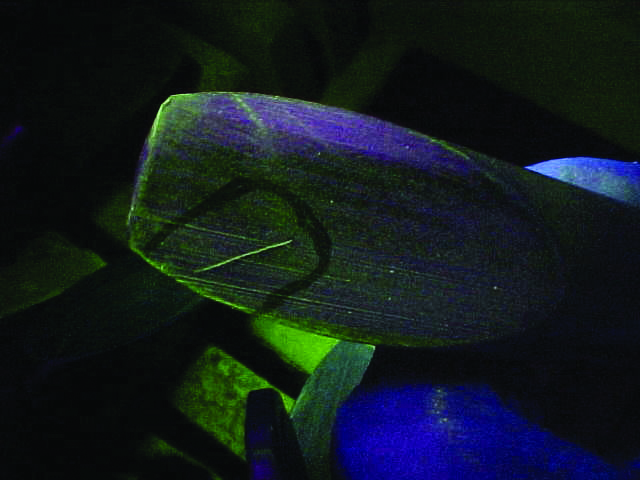 “Over the years, we’ve amassed a huge inventory of customized fixturing, special designs, internal designs—job-specific things. We work closely with our customers to ensure that the way their part is processed involves the highest degree of control and dimensional stability that can be achieved. We pride ourselves on that kind of care. Some people are fast, some are cheap; we’re not exactly the fastest, or the cheapest but I believe we are the most (careful?)‘high-care.’ We treat every part like it’s our own, recognizing the value of each piece, instead of a part of our revenue stream.” I regularly hear from many of the customers I visit that ‘if I have a job that has to be done right’ or ‘if it’s a difficult or demanding job…I send it to Euclid, because I know they’ll do it right no matter what”.
“Over the years, we’ve amassed a huge inventory of customized fixturing, special designs, internal designs—job-specific things. We work closely with our customers to ensure that the way their part is processed involves the highest degree of control and dimensional stability that can be achieved. We pride ourselves on that kind of care. Some people are fast, some are cheap; we’re not exactly the fastest, or the cheapest but I believe we are the most (careful?)‘high-care.’ We treat every part like it’s our own, recognizing the value of each piece, instead of a part of our revenue stream.” I regularly hear from many of the customers I visit that ‘if I have a job that has to be done right’ or ‘if it’s a difficult or demanding job…I send it to Euclid, because I know they’ll do it right no matter what”.
This philosophy is based on the belief that each part has a functional role. Euclid takes a lot of pride in knowing where a lot of our parts go, and what they do.
“We heat treat parts that essentially make the world what it is. So much of what’s in the world wouldn’t be here without heat-treating. We try to always remember that we’re never too many degrees away from the product of what we do.”
“It’s still very robust around these parts, in terms of industry,” said John Sr. “We’re very fortunate in this area of the country to have the kind of machining capacity and abilities that other regions don’t seem to have. A lot of bigger companies have gotten rid of their captive heat treaters, so now they’re outsourcing, which is good for us. That’s given us our best growth potential. In fact, we just had one customer close up their captive heat treat operation and decide to send all their heat treating business here. We can do it all in house, so that’s a nice bonus for them, and for us, too. We see these kinds of things as our true growth potential.
With three children working with him, John Sr. said it’s been great to have the family as a part of everything. “They have a vested interest, obviously, and if I have to go somewhere, I feel completely confident that I have people here to watch over things. They’ve all brought something to the table, having worked in other disciplines before they came to Euclid.”




